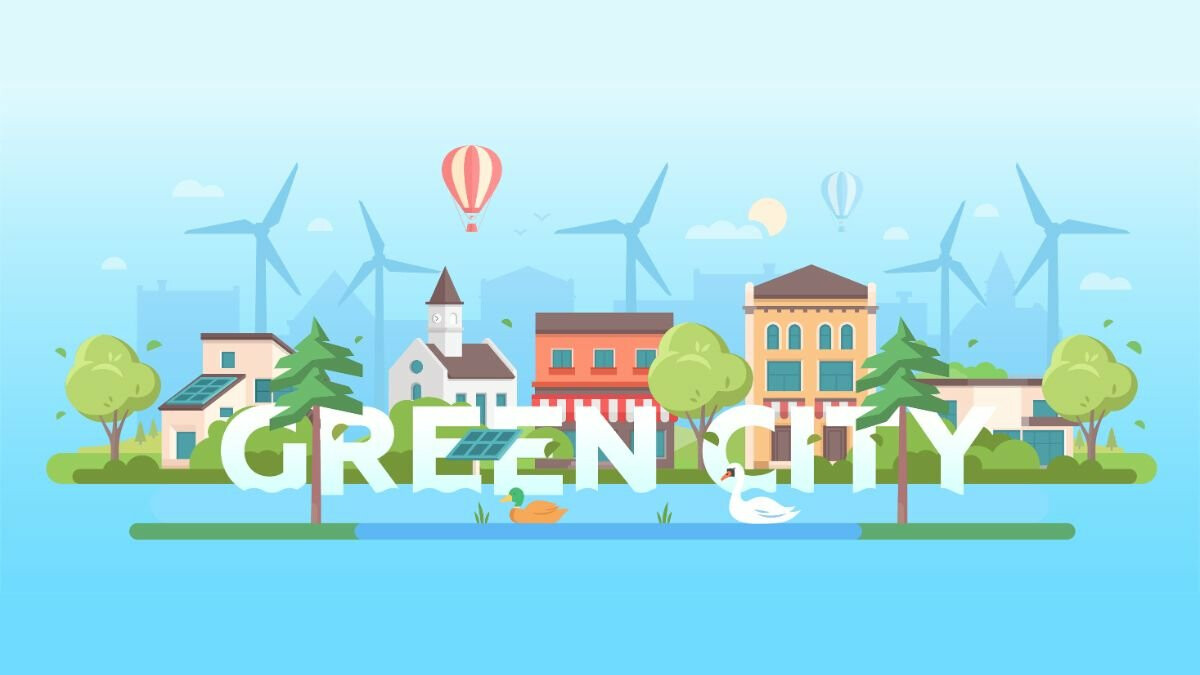11 Jan 2024 | Industry Insights
Building a Greener Tomorrow: The Power of Global Building Performance Standards

Building a Greener Tomorrow: The Power of Global Building Performance Standards
Let's discuss the unsung heroes of the building industry who are making a significant contribution towards saving our planet - building performance standards. These standards are crucial in our fight against climate change, guiding us towards a more sustainable, energy-efficient, and cost-effective future.
Why Green Buildings?
First things first, why should we care about green buildings? Well, buildings account for nearly 40% of global energy-related CO2 emissions. Shocking - we know! But by making our buildings greener, we can significantly reduce our carbon footprint and save money on energy bills.
Now, let's explore some of the key players in building performance standards.
The League of Extraordinary Certifications
- NABERS (Australia): This standard is an instrumental tool in gauging the environmental performance of commercial buildings, bridging the gap between energy-efficient design and actual energy performance. This certification, rating from 0 to 6 stars, provides a reliable measure of a building's energy or water efficiency based on normalised data, serving as a key indicator for energy performance and driving sustainable practices in the built environment.
- Energy Star (USA): This standard puts your building's energy prowess at the forefront. This certification is a testament to your commitment to environmental responsibility and operational savings, offering measurable proof that your building performs in the top 25% of similar facilities nationwide for energy efficiency.
- LEED (Global): The LEED (Leadership in Energy and Environmental Design) building performance certificate is a globally recognised symbol of excellence in green building. This certification showcases your building's superior energy efficiency as well as underscoring your positive impact on human health and the environment.
- BREEAM (UK): The BREEAM (Building Research Establishment Environmental Assessment Method) building performance certificate is an internationally acclaimed benchmark for best practices in sustainable design. This certification is focused on your commitment to reducing environmental impact, boasting top-tier performance that outshines 80% of UK new non-domestic buildings.
- DGNB (Germany): The DGNB (German Sustainable Building Council) building performance certificate is a globally recognised gold standard that provides a comprehensive assessment of your building's ecological, social, and economic aspects. This certification validates your commitment to holistic sustainability and positions your building as an industry leader, setting a benchmark for excellence that goes beyond mere energy efficiency—it evaluates everything from the environmental impact of building materials to the health and well-being of its occupants.
- HQE (France): The High-Quality Environmental (HQE) standard is a certification that marks your building as a paragon of environmental responsibility and user well-being. It's focused on measuring your commitment to creating healthy, comfortable living spaces, assessing everything from energy efficiency and ecological impact to acoustic comfort and indoor air quality, positioning you at the forefront of the industry.
- Green Star (Australia & New Zealand): The Green Star certification is a testament to your building's superior environmental design and performance. It focuses on your commitment to reducing the impact of climate change, enhancing our health and quality of life, restoring and protecting our planet’s biodiversity and ecosystems, driving resiliency in buildings, fitouts, and communities and contributing to market transformation and a sustainable economy.
- CASBEE (Japan): The Comprehensive Assessment System for Built Environment Efficiency (CASBEE) is a leading certification system in Japan that rates your building's environmental performance. It focuses on the sustainability of a building, assessing everything from energy efficiency and resource usage to indoor environment quality.
- BCA Green Mark (Singapore): The Green Mark certification is an accolade conferred by the Building and Construction Authority (BCA) of Singapore that underlines your building's superior environmental design and performance. It's focused on creating sustainable practices and rigorously assessing critical areas such as energy efficiency, water conservation, indoor environmental quality, and green innovation.
- GRIHA (India): The GRIHA (Green Rating for Integrated Habitat Assessment) certification is a highly-regarded standard in India that reinforces your building's commitment to environmental stewardship. It's a powerful tool that rigorously evaluates your building across a spectrum of parameters, including site selection, water efficiency, energy optimisation, and waste management.
- Estidama Pearl Rating System (UAE): The Estidama Pearl Rating System is an authoritative standard set by the Abu Dhabi Urban Planning Council that unequivocally signifies your building's commitment to holistic environmental stewardship. It's a robust evaluation tool that meticulously examines your building across various critical dimensions, including water, energy, and waste management, as well as innovation in the design process.
- Passivhaus (Global): The Passivhaus certification is a globally recognised standard that signifies your unequivocal commitment to reducing your carbon footprint. It's an authoritative testament to your dedication towards sustainability, rigorously assessing your building's thermal performance, airtightness, and mechanical ventilation heat recovery systems.
- WELL Building Standard (Global): The WELL Building Standard is a performance-based certification system that evaluates your building's potential to impact human health and well-being positively. It's focused on fostering healthier environments, thoroughly assessing your building's air and water quality, availability of healthy food options, and other wellness features.
- GRESB (Global): The GRESB certification is a globally recognised standard acknowledging your commitment to environmental, social, and governance (ESG) best practices. It's a comprehensive assessment of your real estate's ESG performance, meticulously evaluating aspects like building design, development structure, and sustainability practices.
- Living Building Challenge (Global): The Living Building Challenge certification is a rigorous and comprehensive building rating system that redefines the relationship between our built environment and nature. It's committed to environmental restoration, meticulously assessing seven performance areas, including net zero energy, water and waste, healthy interior environments, and the building's impact on the site it inhabits.
- Three Star (China): The Three Star is China's leading green building certification system that underscores your commitment to the future of our planet. It's an assessment of your building's overall environmental performance, scrutinising various aspects such as energy efficiency, water conservation, indoor environmental quality, and resource savings.
- EDGE (Global): The EDGE certification is an innovation by IFC, a member of the World Bank Group, that sets your project apart as an example of resource-efficient design. It's a powerful tool for assessing your building's energy, water, and embodied energy in materials. It enables you to reduce operational costs, increase asset value, and make a definitive statement in sustainable design.
- Green Globes (USA & Canada): The Green Globes certification is a comprehensive, science-based, three-in-one building rating system that evaluates the environmental sustainability of your project. It's a robust assessment tool that scrutinises your building's environmental impact, health and wellness aspects and assigns scores based on a weighted 1,000-point scale.
- Zero Carbon Building (Canada): The Zero Carbon Building certificate is an industry-leading standard that recognises and certifies buildings achieving net-zero carbon emissions in their operations. Going beyond just certification, it provides a comprehensive assessment of your building's energy efficiency, commitment to renewable energy sources, and overall carbon footprint.
- NZEB (EU): The NZEB (Nearly Zero Energy Building) certification is a prestigious standard that recognises buildings which have a very high, almost net zero, energy performance. It's an authoritative assessment tool that scrutinises your building's energy consumption and production from renewable sources on-site or nearby.
Differences, Commonalities, and Importance
Each of these standards has its unique strengths and focus areas, reflecting the diverse environmental, cultural, and economic contexts they originate from. For instance, Passivhaus is all about thermal comfort and extreme energy efficiency, while WELL focuses on enhancing people's health and well-being.
However, despite their differences, all these standards share a common goal - promoting sustainability in the building industry. They play a crucial role in reducing emissions, increasing energy savings, and driving economic growth.
The Future is Green
Building performance standards worldwide are transforming the way we design, construct, and operate buildings. They are not just shaping our built environment but also our future. By adhering to these standards, we can create healthier, more resilient, and more sustainable communities.
Moreover, emerging technologies like Digital Twins can further enhance these practices by providing real-time data and insights into building performance. It's like having a crystal ball that shows you exactly how to make your building more sustainable!
So, whether you're a builder, a policymaker, or just someone who cares about our planet, let's embrace these standards and build a greener tomorrow.

eBooks
Digital Twins Simplified
Discover the world of digital twins in a whole new light with our eBook, Digital Twins Simplified! Specifically tailored for construction enthusiasts and professionals, this comprehensive guide demystifies the concept of digital twins, breaking it down into easily digestible insights. Uncover the transformative potential of this cutting-edge technology as you explore real-world applications, benefits, and strategies to revolutionize your construction projects.
Read more

eBooks
How to Create a Digital Twin Strategy
In the era of digital transformation, businesses across various industries are leveraging innovative technologies to enhance their operations and drive growth. One such groundbreaking technology is Digital Twinning. However, to truly harness its potential, a well-thought-out digital twin strategy is vital. This is where our latest PDF - "How to Create a Digital Twin Strategy", part of the Demystifying Digital Twins series, comes into play. This detailed guide is designed to provide you with a clear roadmap to establish a successful digital twin strategy that can significantly impact your business outcomes.
Read more
Book your one-on-one appointment with one of our specialists.
info@twinview.com
+44 (0)844 800 6660
London
24 Greville Street
Farringdon
London
EC1n 8SS
Newcastle
Spaceworks
Benton Park Road
Newcastle upon Tyne
NE7 7LX

